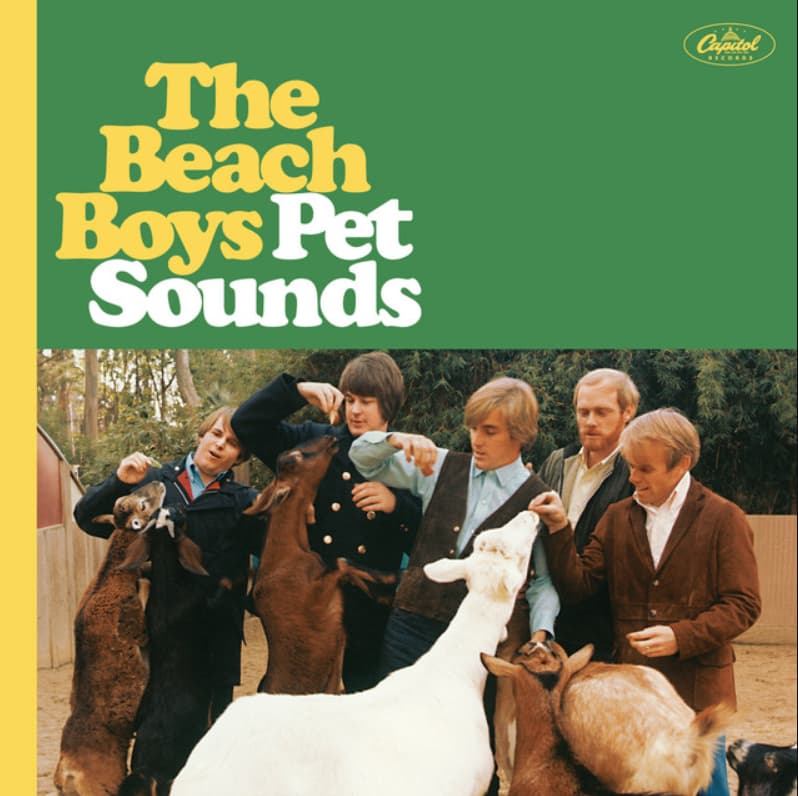
You Still Believe in Me: A Timeless Ballad of Love and Forgiveness
Emerging from the sun-kissed shores of Southern California, The Beach Boys harmonized their way into the hearts of millions with their infectious melodies and nostalgic lyrics. Among their extensive discography, the 1966 ballad “You Still Believe in Me” stands as a poignant testament to the enduring power of love and forgiveness.
The Beach Boys, a vocal group composed of brothers Brian, Dennis, and Carl Wilson, along with their cousin Mike Love and friend Al Jardine, epitomized the carefree spirit of the California youth culture. Their early hits, like “Surfin’ U.S.A.” and “Barbara Ann,” captured the essence of beach life and teenage romance, painting a sonic postcard of an idyllic existence.
However, beneath the veneer of youthful exuberance, Brian Wilson, the group’s visionary leader, grappled with personal demons and an ever-expanding artistic ambition. His introspective songwriting began to infuse their music with a deeper emotional resonance, culminating in the 1966 masterpiece “Pet Sounds”.
“You Still Believe in Me” emerged from this period of profound creative exploration. Written by Brian Wilson and lyricist Tony Asher, the song delves into the complexities of love, loss, and the unwavering belief in another person’s potential.
The song opens with a delicate piano melody, setting the stage for the narrator’s heartfelt confession. With a voice that exudes vulnerability and sincerity, the singer admits his shortcomings and the pain he has caused his beloved.
“I know perfectly well I’m not where I should be,” he laments, acknowledging his flaws and the distance he has created. The lyrics paint a vivid picture of a troubled relationship, one marked by repeated mistakes and broken promises.
Despite the narrator’s self-deprecating tone, a glimmer of hope shines through. The chorus reveals the unwavering support of the one he loves, a beacon of faith in the midst of his turmoil.
“And after all I’ve done to you, how can it be? You still believe in me,” he wonders, his voice filled with a mixture of disbelief and gratitude. This unwavering belief, despite his transgressions, serves as a lifeline, pulling him back from the brink of despair.
The second verse delves deeper into the narrator’s struggles, revealing his desire to be the person his loved one deserves. “I try hard to be more, what you want me to be,” he pleads, expressing his yearning to bridge the gap between his actions and their expectations.
Yet, he acknowledges the futility of his efforts, recognizing his inability to suppress his true nature. “But I can’t help how I act when you’re not here with me,” he confesses, his voice laced with a hint of resignation.
Despite his flaws and imperfections, the narrator’s love remains steadfast. He yearns for redemption, for the strength to overcome his weaknesses and prove worthy of the love he has been given.
“I try hard to be strong, but sometimes I fail myself,” he admits, acknowledging his human frailty. Yet, even in his moments of weakness, the belief of his loved one remains a constant, an anchor in the storm.
The song’s bridge offers a glimmer of hope, a promise of reconciliation and renewal. “And after all I’ve promised you, so faithfully,” the narrator recalls, his voice filled with determination. This unwavering commitment, coupled with the unwavering belief of his loved one, serves as a catalyst for change.
The song culminates in a heartfelt plea for forgiveness, a recognition of the power of love to heal and transform. “I wanna cry,” the narrator confesses, overwhelmed by the depth of his emotions. These tears, however, are not tears of despair, but rather tears of gratitude and newfound hope.
“You Still Believe in Me” stands as a timeless ballad of love, forgiveness, and the enduring power of faith. With its poignant lyrics and heartfelt melodies, the song resonates with listeners of all ages, offering solace and hope in the face of life’s challenges. It is a testament to the enduring legacy of The Beach Boys, their ability to capture the complexities of human emotion and connect with listeners on a deeply personal level.